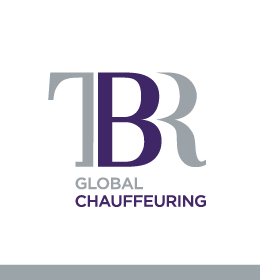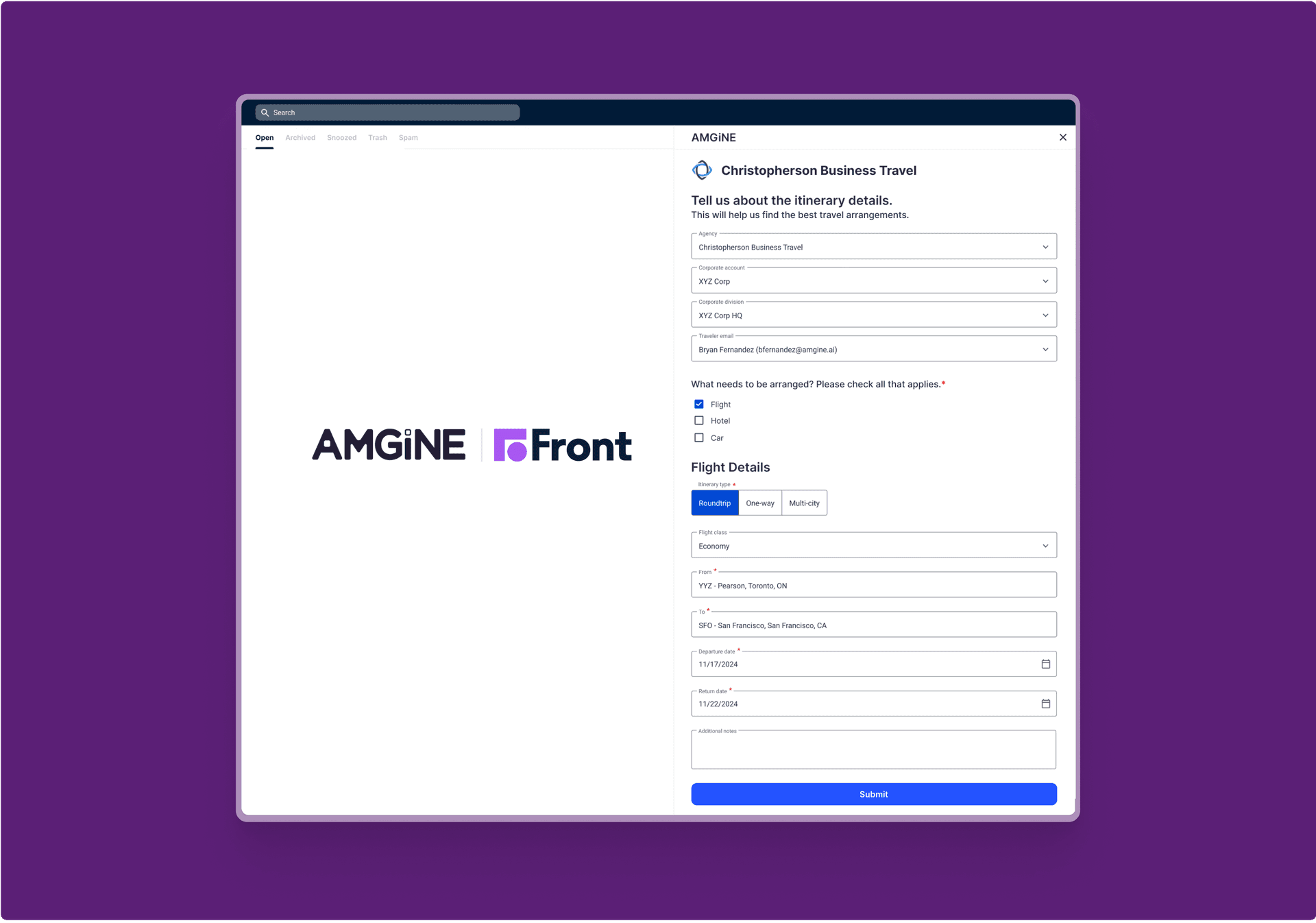TBR Global Chauffeuring is a world leader in ground transportation, relentlessly driving excellence across the financial roadshow, global events and corporate travel markets. Combining cutting-edge technology with award-winning expertise, TBR enhances customer lives by consistently delivering a safe, high-quality service, providing complete confidence.
TBR’s success has come from its innovative proprietary booking system, expansive affiliate network, and team of experts. The combination gives clients the confidence that drivers will show up when and where they are supposed to, regardless of whether they are chauffeuring one guest or one thousand.
To gain the trust of such a prestigious audience, TBR must be on the ball every time. And that dependable consistency is made possible by Front.
Challenge
Originally, TBR Global Chauffeuring used Outlook to manage their communications with suppliers (driver agencies) and their clients, but they ran into a number of challenges, especially as they grew in size and expanded their service offering.
Outlook did not offer a straightforward way to establish message ownership. To overcome this, TBR staff would assign messages to specific owners based on pre-built Categories within Outlook. But Categories were slow to update to other Outlook clients. And because TBR had an aggressive 15-minute response time service level agreement (SLA), agents would start replying to a message only to find out it was already assigned to someone else. At that point, it was hindering agent productivity since one of them would have to discard their draft and find a different message to work on.
Outlook’s slow performance was also an issue. The more folders employees made to organize their work, the worse Outlook performed. The team also began running into Outlook’s shared inbox limit, so TBR had to create 3 online Outlook inboxes for staff to monitor — in addition to the 12 they were already keeping an eye on.
Lukasz Biegus, CTO of TBR Global Chauffeuring, explains, “syncing folder-by-folder and jumping between 2 tools and 15 inboxes took minutes to tens of minutes. And we’d have to reconfigure Outlook every time someone got a new PC. It was hampering our productivity.”
With no opportunities to automate — let alone measure the impact that automation would have on employee efficiency and response time — TBR’s leadership team turned to another solution.
Solution
This wasn’t the first time TBR tried moving away from Outlook. A few years back, they’d tried to implement a ticketing system, only to find out in four weeks that it was going to change the way their teams work too significantly. Not wanting similar results, TBR took its time evaluating three alternate vendors.
Front’s look and feel, extensibility, and omnichannel approach won out. Best of all, Front’s team promised a painless transition from Outlook. As Lukasz puts it: “Front was by far the best for our needs and would require the least change in the way that we work.”
Boosting team efficiency with real-time automation
Today, TBR still runs a pooled, self-assignment model, but Front’s shared inboxes centralize communications and provide clear ownership.
In Front, assignments happen in real-time — not tens of minutes — making it obvious who is responding to what and eliminating the chances of duplicate responses. Plus, Front is directly tied to TBR’s internal planning and booking system, TBROS, making it easy for teammates to pull quotes, convert them into bookings, or access other information needed to respond to clients and suppliers quickly.
TBR has also taken advantage of Front’s routing rules, using them to streamline shared inboxes and backend processes by:
Separating client communications from supplier and IT emails for easy prioritization
Auto-archiving OOO replies and select TBROS-generated emails to clear clutter
Tagging conversations for categorization and easy reference later
Automatically applying SLAs to client messages to ensure a timely response
Automation has not only significantly reduced email traffic, it has also simplified data collection.
We’ve cut the volume of certain reservation inboxes easily by 50%, and now Front acts as our source of truth for account data.
Resolving conversations quickly with effective collaboration
TBR’s clients expect comprehensive, high-quality responses — fast. But some cases require extra due diligence and care. In Outlook, that kind of collaboration meant forwarding teammates lengthy handover emails, making it tough to pinpoint relevant details.
Front’s shared inboxes, on the other hand, allow team members to craft emails together for the most accurate, personalized response to each client. If a team member needs to pull in an expert to help on a complex issue, they can highlight the relevant text and easily loop a teammate into a shared draft. This shared visibility ensures client questions are always answered quickly and completely.
TBR isn’t just responding faster, they now have the metrics to prove it. Front’s native Analytics allow their team to measure critical metrics like response time, busiest time of day, volume of certain types of request, and more. This level of insight was not available with Outlook and has allowed them to dramatically improve their operations over time.
Increasing capacity with time savings
TBR also leverages dynamic objects to automatically attach a clickable link to the record in TBROS, eliminating the hassle of manually searching for quote and booking information. This single change in their workflow saves 20 working days a year and provides context for future integration work.
Front also helps TBR find important messages faster while keeping their threads organized. Team members can pull all historic exchanges related to TBROS IDs. If a request requires follow-up with multiple parties, they use Front’s linked conversations to associate all follow-up emails related to the original request.
These automation and productivity features have empowered TBR to save an estimated 11,000 hours in their first year using Front. The time savings translates into five deferred hires — a whopping 225% ROI.
We’re able to handle a similar volume of emails as we had in 2019 with 25% less staff. It’s really made us more efficient.
And TBR is just getting started with Front. “I expect the platform to play a more critical role in expansion and retention as we decide to support additional communication channels, like SMS and potentially WhatsApp. And I’m very happy to see that Front is introducing new features.”
Ultimately, Front has enabled TBR Global Chauffeuring’s team to continue obsessing over quality — in less time and with more efficiency.











